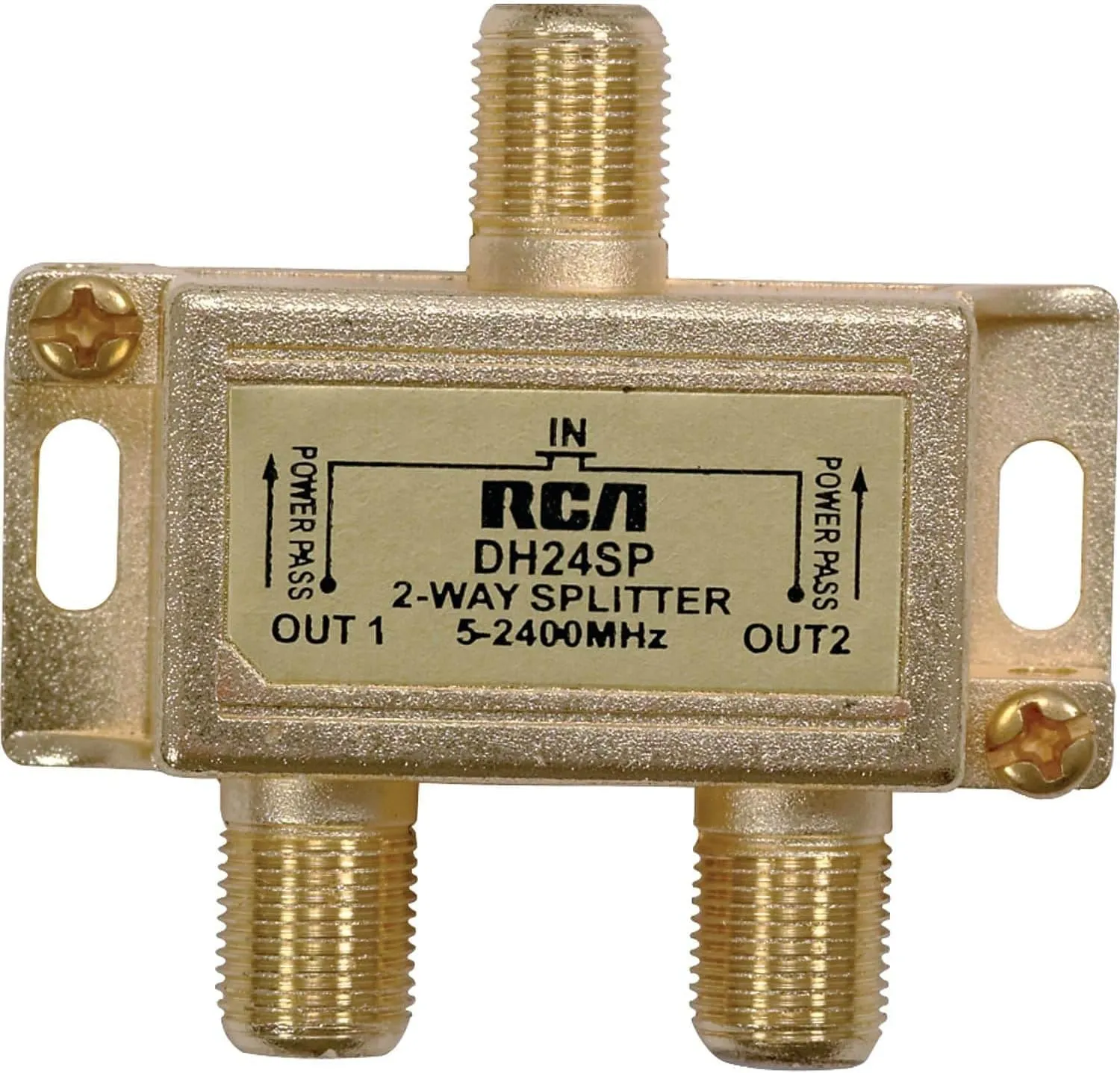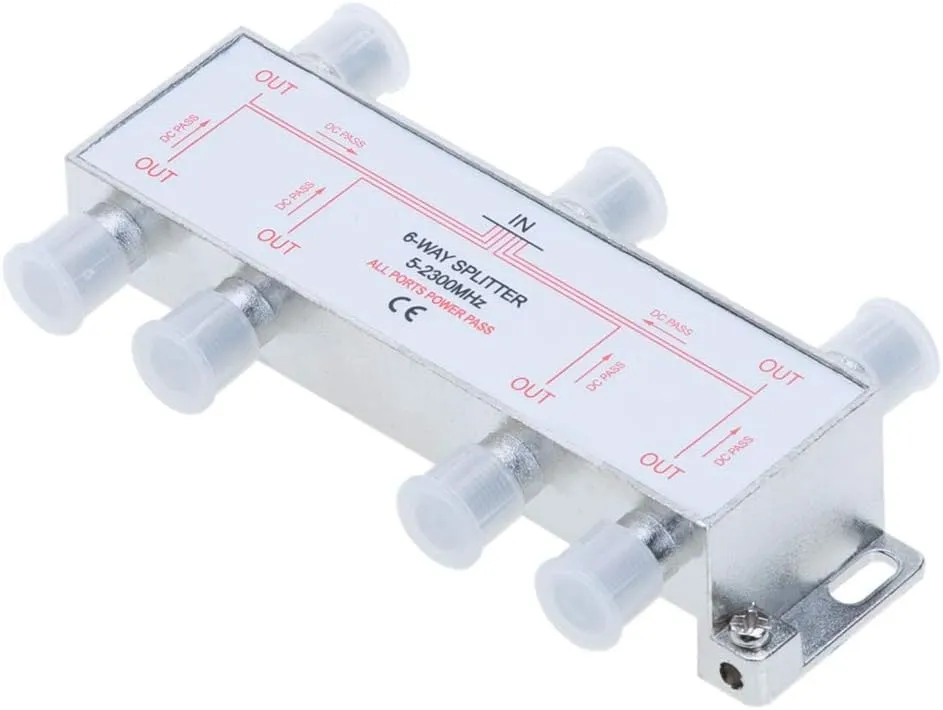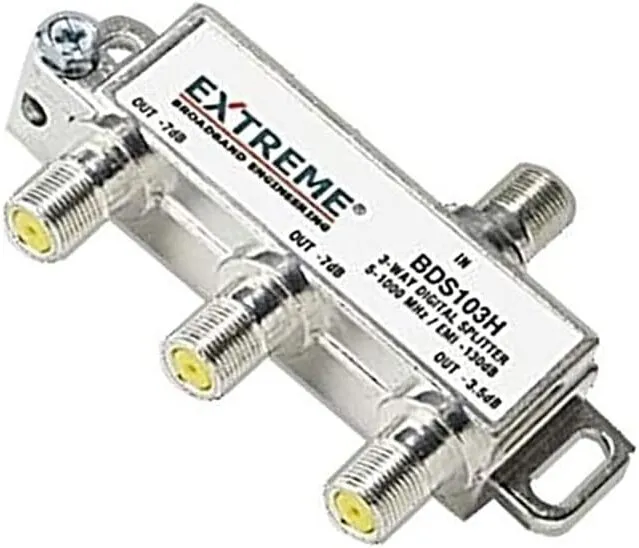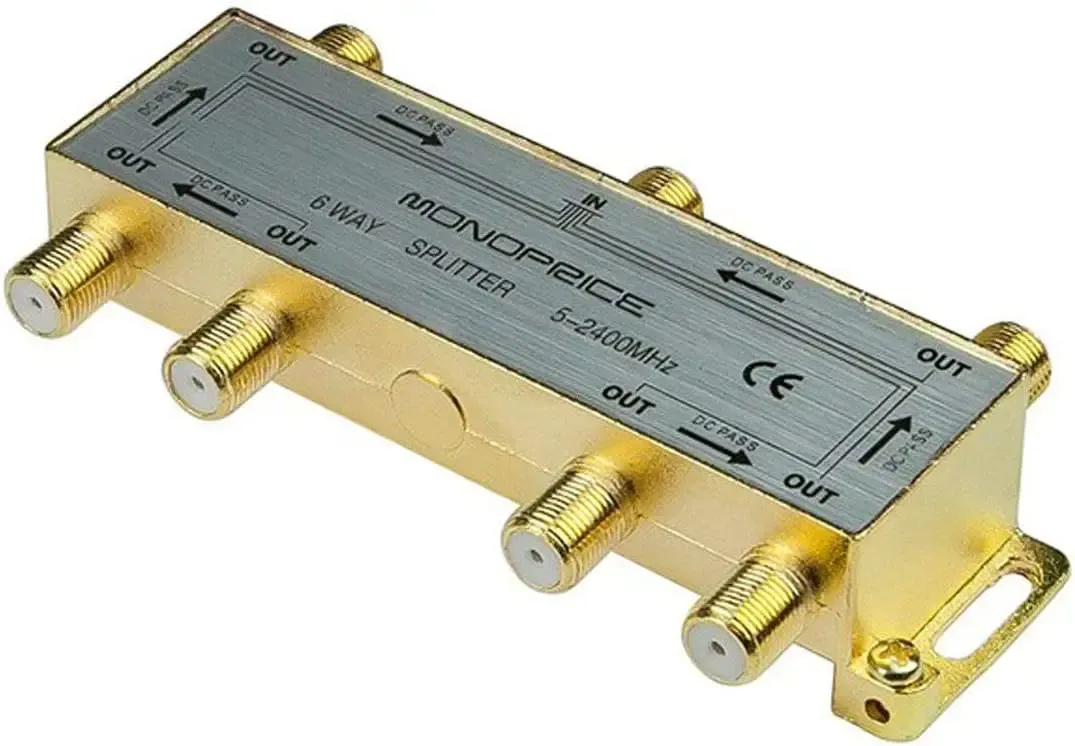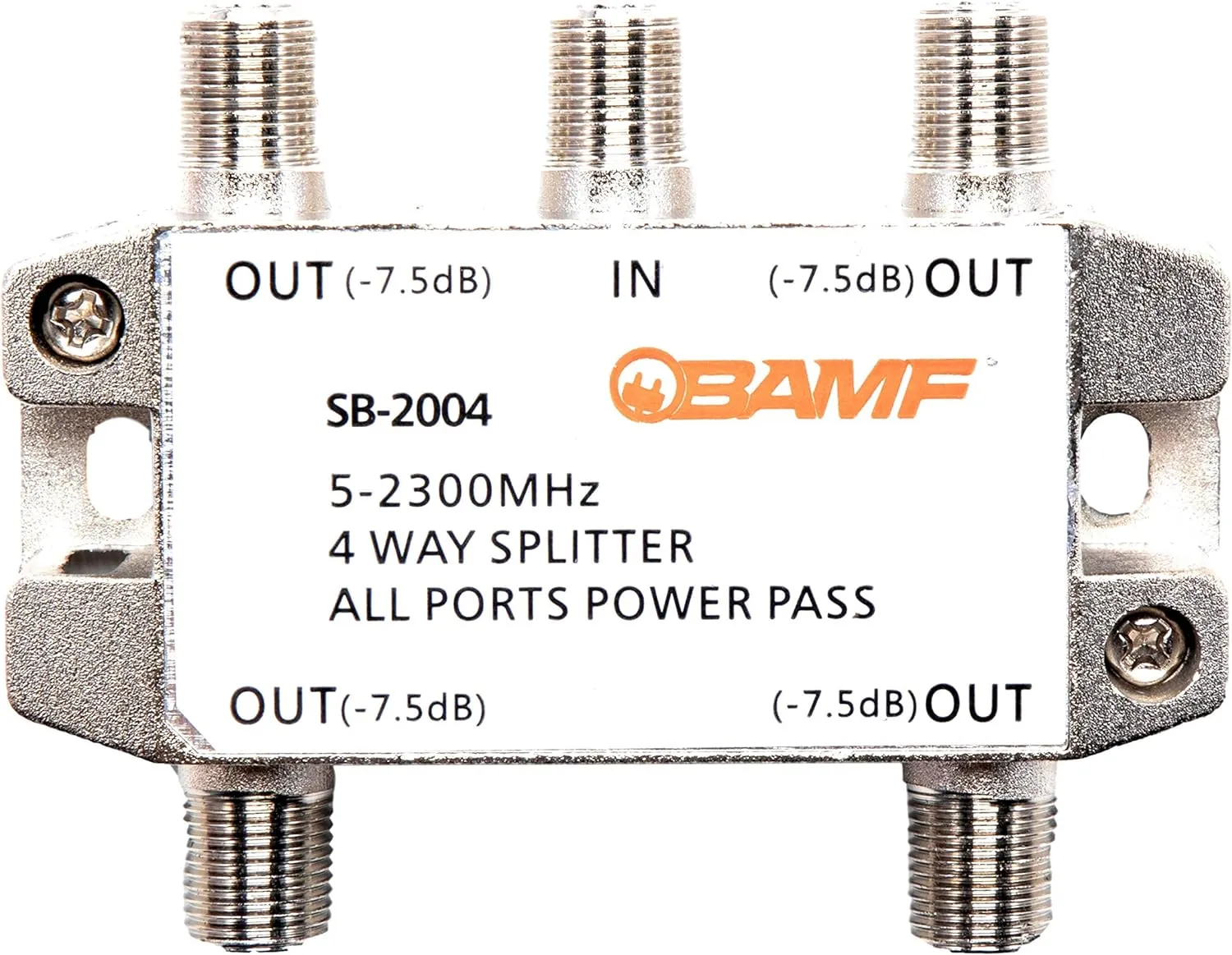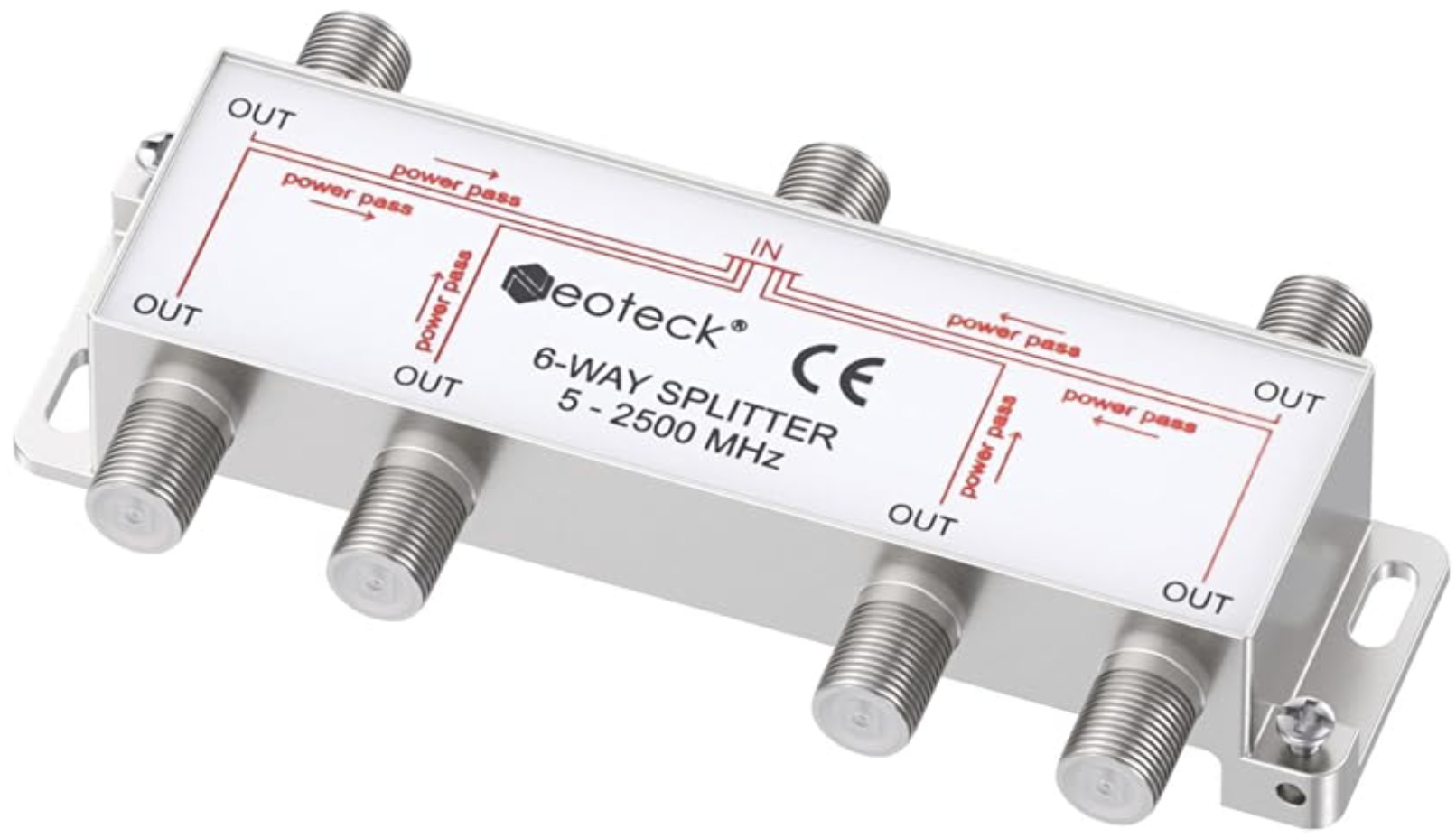Best Coaxial Cable Splitter for High Speed Internet and TV
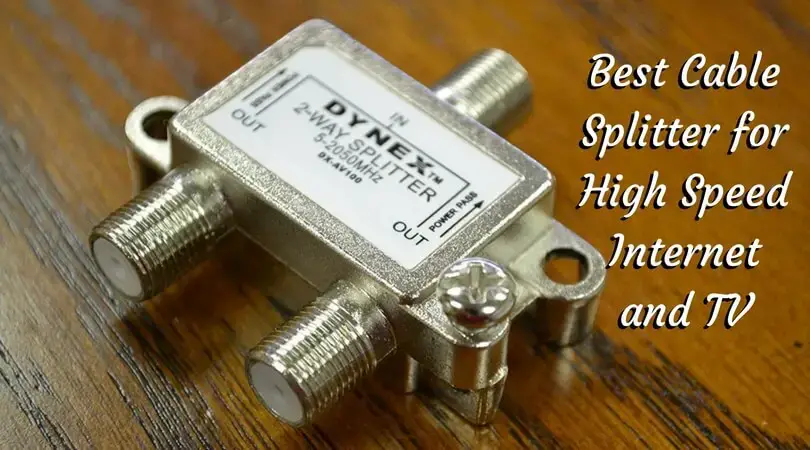
Affiliate Disclaimer
As an affiliate, we may earn a commission from qualifying purchases. We get commissions for purchases made through links on this website from Amazon and other third parties.
Top Choices
Top pick
Editors choice
The best cable splitter provides you an option to have multiple connections from a single coaxial cable by splitting it to one-to-many directions. You can have high-speed internet or cable TV connection on your computer, video consoles, Television Sets, and other devices from a single coaxial cable signal with the help of a coax splitter. Depending on your needs, you can get a 2-way/3-way/4-way/5-way/6-way/8-way cable splitter for internet and TV. Today, we will check such a list of the best cable splitters available in the market.
Table of Contents
Best Cable Splitters
Antronix VRA900B
The Antronix VRA900B is a professional-grade 9-port bi-directional cable TV amplifier designed to enhance signal distribution in residential settings. It features 8 amplified output ports with unity gain in both forward (52–1002 MHz) and return (5–42 MHz) paths, ensuring consistent signal strength across all connected devices. Additionally, it includes a passive VoIP port that maintains voice service functionality even during power outages.
- 1
Unity Gain Amplification: Provides 0 dB gain on all 8 output ports in both forward and return paths.
- 2
Passive VoIP Port: Ensures uninterrupted voice services by maintaining functionality during power disruptions.
- 3
CamPort® Auto-Seizing F-Ports: Patented design offers superior contact reliability for multimedia applications.
- 4
All-Ports-Down Configuration: Facilitates clean and organized installations within Network Interface Device (NID) enclosures.
- 5
6 kV Surge Protection: Protects all RF ports from electrical surges without introducing high impulse noise.
- 6
Durable Housing: Constructed with powder-coated aluminum for corrosion resistance against environmental factors.
RCA DH24SPF 2-Way Bi-Di Splitter
The 2-way DH24SPF splitter for coaxial cable for internet from RCA will split a single coax signal into a dual connection for your internet or cable TV. It offers a durable and effective solution for a high-speed connection.
- 1
It is a 3GHz bi-directional cable TV splitter which will give you a high-grade circuitry
- 2
You will get a reliable high-speed connection due to its gold plated input and outputs
- 3
You will get minimum signal loss and superior transfer rate
- 4
Frequency of 5-2400MHz
- 5
Precision cast body and connections that are duly grounded functionality give durable high-speed connection
Amphenol 2-Way Digital Coaxial Splitter
A high-performance 2-way coaxial splitter optimized for MoCA 2.5, supporting broadband and video signals over coaxial cable with wide frequency range up to 1675 MHz.
- 1
Supports MoCA 2.5 networks for fast data over coaxial cable.
- 2
Wide frequency range: **5 – 1675 MHz**, works with both video distribution and broadband/MoCA signals.
- 3
Low insertion loss to maintain signal strength.
- 4
Good isolation between ports to reduce interference.
- 5
Sturdy metal housing, suitable for indoor/outdoor use.
- 6
15 PSI pressure-sealed coaxial F-ports for environmental protection.
- 7
Surge withstand: 6 kV ring wave protection.
Cable Direct: 6 Way Bi-Directional 5-2300 MHz Coaxial Antenna Splitter
One of the most trusted brands in the market, Cable Matters has designed this silver-plated balanced coaxial splitter which provides 6-way output. It comes in a cost-effective and convenient 2-pack to use on different devices. It is also known as a cable TV splitter, RF splitter, coaxial digital splitter, RG6 splitter, etc.
- 1
Silver-plated input and output give a durable and corrosion-free connection.
- 2
It will help you to split the single coaxial input signal to your multiple computers, cable boxes, satellite receivers, VCRs, TV sets, etc.
- 3
Zinc cast construction housing helps to reduce insertion loss.
Extreme 3-Way BDS103H Unbalanced Coax Cable Splitter
The 3-way unbalanced coaxial signal splitter from Extreme Tech allows you to connect your three devices from a single input source for internet or cable TV. If you need a stronger signal output over one or more ports, then the unbalanced coax cable splitter is recommended.
- 1
It will work on all types of modems, TVs, computers, etc.
- 2
If you want a superior strength over a single output port, then get this unbalanced coaxial cable splitter
- 3
Boosts signals with 5.5dB output per port
- 4
1GHz frequency which supports analog, digital, and HDTV picture signals
PREMIUM 110016 6-Way F-Type Coax Cable Splitter
Monoprice has designed this 6-way coax cable splitter which comes with a specially built F-Type screw for VCR and cable TV antennas. One input and six outputs allow you to connect your computer, TV, modem, cable boxes, and other devices at the same time.
- 1
The gold plated design offers to have an optimal connection
- 2
Supports a frequency range of 5 to 2400MHz
- 3
At one end, it has a grounded connection which provides reliability
- 4
Specially designed F-Type screw for video cable TV
- 5
5 to 2400MHz frequency support
BAMF 4-Way Bi-Directional MoCA Coax Cable Splitter
The 4-way bi-directional coax cable splitter from BAMF Manufacturing gives the power to pass from all the output ports. It gives an improved experience with a high-quality bi-di output.
- 1
The RF bi-directional coax splitter is great for MoCA, Satellite, and CATV
- 2
Supports a frequency range of 5-2300MHz
- 3
Improved performance and speed with just a loss of 7dB per port
- 4
Offers to have an easy satellite connection with power passing on all ports
- 5
Water resistant circuit board gives durable, reliable, and high-speed coaxial signal connection on internet and cable TV
- 6
It improves signal quality, reduces packet loss, and lowers the digital noise on all the connected devices
Neoteck Coax Cable Splitter
Your search for the absolute best ends with Neoteck! It is an Amazons Choice product with excellent reviews! It is available in different variants, allowing you to choose what you need. You can pick from 2-way, 3-way, 4-way, and 6-way splitters.
- 1
Depending on the variant you choose, you can split the cable from 1 input with the utmost ease.
- 2
It is ideal for broadband connection, cable TV, and aerial signals.
- 3
It has a high-yielding structure that works to improve signal quality and minimize noise without compromising on the signal at all. You will experience absolutely no packet loss.
- 4
You can use it with Dreambox, Starview, NTL, Virgin Media, Telewest, etc.
- 5
The package includes a splitter, patch leads with F-plugs, an adapter, and a joiner.
- 6
It is very easy to install.
- 7
It doesnt burden the electricity at all.
Conclusion
If you want to direct the coaxial signal to multiple devices, then the coax splitter will help you do that. Not a problem if you have the source device in one room and you want the connections in different rooms, the best cable splitter for internet and TV will make it possible. You can add as many internet and cable connections as you want in your home or office with the help of the 2-way, 3-way, 4-way, 5-way, 6-way, or 8-way coaxial cable splitters. Choose your most suitable cable splitter from the above list and connect your multiple TVs, modems, computers, and other devices to a single coaxial signal.
Comparison of Top Cable Splitter
| Product | Ports | Boost per Port | Frequency Range | Weight | Dimensions (inches) | Notable Features |
|---|---|---|---|---|---|---|
| Antronix VRA900B | 8 + 1 VoIP | 0 dB (Unity Gain) | 5-1002 MHz | 0.74 lbs | 6.0 x 3.8 x 1.4 | Amplified outputs, passive VoIP port, surge protection, durable housing |
| RCA DH24SPF 2-Way Bi-Di Splitter | 2 | -3.5 dB | 5-3000 MHz | 0.1 lbs | 6.0 x 1.0 x 5.0 | Gold-plated ports, high-grade circuitry |
| Amphenol 2-Way Digital Coaxial Splitter | 2 | -3.5 dB | 5-1675 MHz | 0.15 lbs | 4.7 x 4.4 x 1.3 | MoCA 2.5 support, 6kV surge protection, 15 PSI sealed F-ports, low insertion loss |
| Cable Direct 6-Way Bi-Directional Splitter | 6 | -11 dB | 5-2300 MHz | N/A | N/A | Indoor/outdoor use, waterproof design |
| Extreme BDS103H 3-Way Unbalanced | 3 | -7 dB / -7 dB / -3.5 dB | 5-1000 MHz | 0.2 lbs | N/A | Unbalanced outputs, zinc die-cast housing |
| PREMIUM 110016 6-Way F-Type | 6 | -11 dB | 5-2400 MHz | 0.24 lbs | N/A | Gold-plated connectors, F-type screw |
| BAMF 4-Way MoCA Splitter | 4 | -7.5 dB | 5-2300 MHz | 0.1 lbs | 2.9 x 2.2 x 1.0 | MoCA compatible, all ports power pass |
| Neoteck Coax Cable Splitter | 6 | -11 dB | 5-2500 MHz | 0.53 lbs | N/A | MoCA compatible, includes F59 terminators |
Know The Working of Cable Splitter?
We have seen the best cable splitters and the comparisons of top brands. And as soon as you have bought a new cable TV for your bedroom and want a separate cable connection for it, you think of a cable splitter. But do you ever wonder how actually it works? Lets see the functioning of the cable splitter here.
As you all know that a cable splitter is an input/output device that takes a single input and delivers multiple output signals. The number of the output channels depends on how many connections you want and which type of splitter you buy. Normally, a cable splitter ranges from 2-way to 16-way. Unlike to the ancient ones, the modern cable TV splitters are built with the technology that helps to retain the strength of the signal to avoid the loss of modulation. This results in the superior image quality and enhanced viewing experience on your cable TV and monitors.
- So the basic functioning of a cable splitter is to provide at least two separate output signals for your cable TV and internet.
- The most significant advantage of using a cable TV splitter is that it prevents the signal weakness which occurs if you directly send the signal to the device from the source.
- Though the cable splitters provide enough signal strength for the internet and cable TV, they do have some signal loss at the time of transmission. This loss can be measured in decibels.
- It is advisable to not use a second cable splitter behind the first one. If you want more output signals, you should use a good-quality cable splitter having a particular amount of output ports.
- Know the difference of cable TV splitter Vs satellite TV splitters. Don’t use one at the place of other as it can cause drastic signal loss.
Check your need and buy accordingly. It is preferable to purchase a splitter with some more output ports than you need currently as the requirement may increase in future. Signal amplifiers & diplexers do have some similarities with a cable TV splitter. The signal amplifiers come with adjustable knobs to set the outgoing signal according to the requirement i.e. for a longer duration or for the scenarios where many output signals needed. The diplexers are useful when you want to connect your cable TV with an OTA antenna.
High-bandwidth splitters are costly than those having lower bandwidth capability, but if you want an uninterrupted, high-quality, and multiple output signals for the cable TV and internet, then you should go for the best cable TV splitter available in the market.


